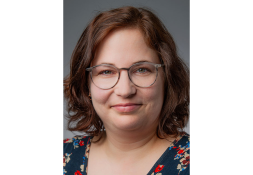Medicine
The Competence Centre Medicine comprises the following sections
- Outpatient Clinic/ Occupational Diseases and Advice
- Occupational Dermatology
- Experimental Occupational Medicine
Traditionally, research by the Competence Center of Medicine has focused primarily on respiratory diseases caused by hazardous substances. The problems addressed range from prevention of and compensation for diseases caused by silica dust, asbestos and organic dusts, through occupational allergies, to acute and chronic irritative effects. The center uses a large number of cutting-edge medical diagnostic methods, in some cases in close cooperation with the Bergmannsheil University Hospital, in order to prevent and assess occupational diseases. Among these, non-invasive diagnostic methods are of growing importance. 700 to 800 patients are examined in the outpatient clinic each year. To these several hundred test subjects taking part in the numerous IPA experiments and field studies are added.
In the area of occupational dermatology, studies are performed into occupational skin diseases and their prevention. Clinical studies are also conducted with respect to skin cancer caused by UV radiation, and experimental in vivo and in vitro studies regarding penetration of the skin by hazardous substances. Dermatological assessments are performed in order to assess the occupational contribution to diseases. For particular allergological issues, patients are tested with occupationally relevant substances for possible occupational contact allergies. For this purpose, the expertise in occupational dermatology and allergology is combined with the IPA’s analytical and toxicological expertise.
Experimental occupational medicine focuses on clarifying the acute effects and their mechanisms following occupational exposure to hazardous substances. Examples of the issues to be addressed are inflammatory effects of (nano-)particles and the mutagenic action of carcinogens in cells, and also acute effects of irritants in the human respiratory tract. Methods employed range from experiments on cell cultures to controlled studies on human study participants in the exposure laboratory (ExpoLab). In the latter, the effects of multiple exposures, such as to particles, hazardous substances or allergens, can be studied simultaneously under highly standardized exposure conditions.
The Competence Center of Medicine extensively consults with the German Social Accident Insurance (DGUV) and the individual accident insurance institutions on issues of prevention and compensation. In addition, the competence center’s researchers participate in state and research advisory committees. Besides conducting research studies, the occupational physicians conduct medical surveillance examinations of employees of various companies.


